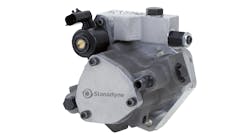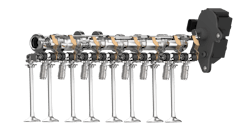A bill that puts new limits on the use of aftermarket parts in collision repair has passed into law in Rhode Island without the signature of Governor Gina Raimondo.
The law (which began as H-8013/S-2679) was passed by the state’s General Assembly in June. Under the new law, insurance companies cannot mandate the use of aftermarket parts without consent from the vehicle owner for cars that are less than 48 months passed the date of manufacture.
Under state law, bills passed by the General Assembly automatically become law after 10 days of being sent to the governor, provided they aren’t vetoed.
The new law updates existing legislation that had originally set the timeframe for use of aftermarket parts on vehicles less than 30 months old. Insurance companies opposed the bill, and the Property Casualty Insurers Association of America (PCI) had lobbied for the governor to veto it.
"By passing extremely narrow interest legislation to ban the use of aftermarket parts, the General Assembly has unfortunately voted to raise auto repair costs for Rhode Island drivers who, as a result, could end up paying the highest auto insurance premiums in the U.S.,” said Frank O'Brien, vice president of state government relations for PCI. “This legislation puts Rhode Island far outside of the national mainstream by further micromanaging the auto repair and insurance claims process. No other state in the country bans the use of high quality, reliable aftermarket parts which cost 20-30 percent less than expensive original equipment manufacturer parts, and their use helps to keep auto repair costs down.”
According to PCI, bills backed by the autobody sector have increased repair costs in the state and limited the role of insurers in the claims process.
The Auto Body Association of Rhode Island (ABARI) supported the bill.
Under the legislation, the insurer and repair shop must provide written notice to the vehicle owner that they may require the insurer to pay for OEM parts used to repair or replace any collision damaged part on the vehicle. In addition, insurers are prohibited form requiring the repairer to use repair procedures that are not in compliance with OEM recommendations.

